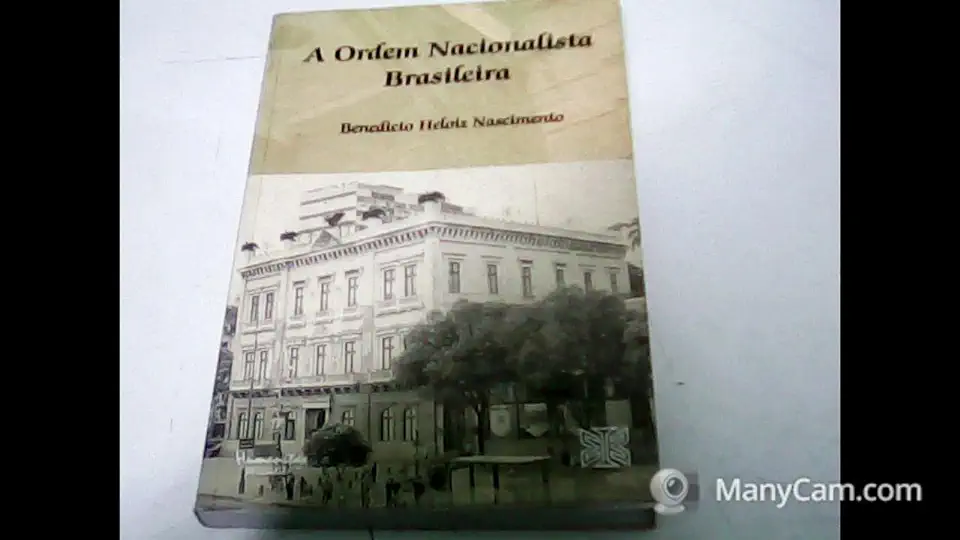
The Brazilian Nationalist Order - Benedicto Heloiz Nascimento
The Brazilian Nationalist Order: A History of the Integralista Movement in Brazil
Benedicto Heloiz Nascimento's The Brazilian Nationalist Order is a comprehensive and well-researched history of the Integralista movement in Brazil. The book provides a detailed account of the movement's origins, ideology, and activities, as well as its relationship to other fascist movements in Europe and Latin America.
Origins of the Integralista Movement
The Integralista movement emerged in Brazil in the early 1930s, in response to the country's political and economic crisis. The movement was founded by Plínio Salgado, a journalist and lawyer who was inspired by the fascist movements in Europe. Salgado believed that Brazil needed a strong and authoritarian government to restore order and prosperity to the country.
Ideology of the Integralista Movement
The Integralista movement was based on a number of core beliefs, including:
- Nationalism: The Integralistas believed that Brazil was a unique and special nation, with its own distinct culture and destiny. They rejected the idea of internationalism and believed that Brazil should be self-sufficient and independent.
- Authoritarianism: The Integralistas believed that a strong and authoritarian government was necessary to maintain order and stability in Brazil. They rejected the idea of democracy and believed that the people should be ruled by a strong leader who would protect their interests.
- Traditionalism: The Integralistas believed that Brazil's traditional values were under attack from modernism and secularism. They sought to preserve these values and to restore Brazil to its former glory.
- Anti-Semitism: The Integralistas were virulently anti-Semitic. They believed that Jews were a threat to Brazil and that they should be expelled from the country.
Activities of the Integralista Movement
The Integralista movement was active in a number of areas, including:
- Politics: The Integralistas formed a political party, the Integralista Brazilian Action (Ação Integralista Brasileira), which participated in elections and held public office.
- Militias: The Integralistas formed militias, known as the Green Shirts (Camisas Verdes), which were used to intimidate political opponents and to suppress dissent.
- Propaganda: The Integralistas used propaganda to spread their message and to recruit new members. They published newspapers and magazines, and they held rallies and demonstrations.
Relationship to Other Fascist Movements
The Integralista movement was closely aligned with other fascist movements in Europe and Latin America. The Integralistas shared many of the same beliefs and goals as these other movements, and they often cooperated with them.
The Decline of the Integralista Movement
The Integralista movement reached its peak in the mid-1930s. However, the movement began to decline in the late 1930s, due to a number of factors, including:
- Government Repression: The Brazilian government began to crack down on the Integralistas, arresting their leaders and suppressing their activities.
- Internal Divisions: The Integralista movement was plagued by internal divisions, which weakened the movement and made it less effective.
- World War II: The outbreak of World War II further weakened the Integralista movement, as many of its members were drafted into the military.
Conclusion
The Integralista movement was a significant force in Brazilian politics in the 1930s. The movement's ideology and activities had a profound impact on Brazilian society and politics, and its legacy can still be seen today.
Why You Should Read This Book
The Brazilian Nationalist Order is a must-read for anyone interested in the history of fascism in Brazil and Latin America. The book provides a comprehensive and well-researched account of the Integralista movement, and it offers a valuable insight into the rise and fall of fascism in the region.
This book is also essential reading for anyone interested in the history of Brazil. The Integralista movement was a major force in Brazilian politics in the 1930s, and its legacy can still be seen today. This book provides a valuable understanding of the movement's impact on Brazilian society and politics.
If you are interested in learning more about the history of fascism in Brazil and Latin America, or if you are simply interested in the history of Brazil, then I highly recommend reading The Brazilian Nationalist Order.
Enjoyed the summary? Discover all the details and take your reading to the next level — [click here to view the book on Amazon!]